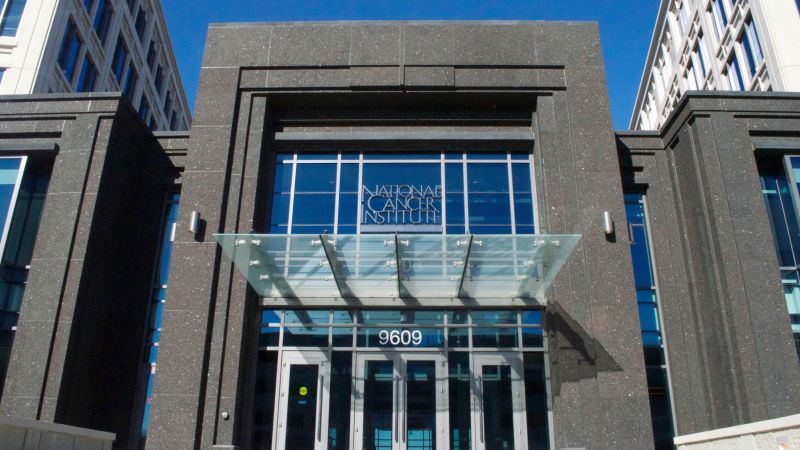The Trump administration’s actions against scientific research have created significant turmoil within the National Cancer Institute (NCI), a pivotal federal research institution renowned for its contributions to cancer treatment advancements over many decades. This respected institute, once praised for drawing bipartisan support, is now grappling with a substantial departure of clinicians, researchers, and other staff. Firings and voluntary exits driven by frustration are reshaping the workforce landscape, threatening the continuation of various vital cancer research initiatives.
This unsettling shift has profound implications, potentially hindering progress made over the years in battling cancer. There has been a notable reduction in cancer-related funding, with NCI ceasing support for various nationwide research efforts aimed at combating the disease, enhancing care delivery, and training the next generation of oncologists. Employees have described the abrupt termination of grants as akin to “drone attacks” from higher-ups, indicating a lack of transparency and communication regarding funding decisions.
Statistically, cancer remains a grave public health challenge, with nearly 2 million Americans being diagnosed annually; in 2023 alone, the disease was responsible for the deaths of over 613,000 individuals. Fortunately, strides have been made in reducing cancer mortality rates by 34% since 1991, a success attributed to increased government funding in cancer research bolstered by individuals like Karen Knudsen, CEO of the Parker Institute for Cancer Immunotherapy, who believe that curtailing funding makes little sense, especially when victories have been hard-won.
The insights presented in a recent article stem from discussions with nearly two dozen current and former NCI staff members, academic scientists, and cancer patients. Many interviews highlighted the pervasive anxiety stemming from the tumultuous changes within the institute. An NCI laboratory chief with three decades of experience expressed despair over the loss of personnel, which included multiple researchers and administrative staff. The wave of layoffs and departures raises serious concerns about the institute’s future viability and its ability to uphold its mission.
In an effort driven by mandates from the Department of Health and Human Services, the NCI has been compelled to drastically reduce contract expenditures by over one-third. This move threatens to disrupt the maintenance of crucial biological specimens that inform ongoing cancer research. Reports from internal sources reveal delays in acquiring essential supplies needed for experimental workflows due to staff reductions and shifting procurement policies. Additionally, the fallout from staffing cuts has resulted in the halt of updates to critical resources that facilitate physician and patient access to up-to-date cancer treatment and diagnosis information.
The unfortunate state of communications at NCI has reached a new low, with a lack of updates on various websites that provide essential healing resources. The HHS’s recent staffing decisions have curbed the dissemination of vital information on cancer treatments, slowly transforming the NCI from a beacon of hope into a shadow of its former self. Conversations among staff reveal concerns about restrictions placed upon communications with the public, limiting discussions on critical topics like mass firings or diversity and equity initiatives.
Amidst this environment of chaos, some express concerns about the long-term implications of such turmoil, suggesting that it could cast a lasting shadow on the nation’s cancer research landscape. Renowned figures within NCI have raised their voices regarding the detrimental consequences these changes could have on lifesaving efforts, emphasizing that a decline in research productivity directly correlates with increased mortality rates among cancer patients.
Notably, the National Cancer Institute is grappling with funding challenges at a time when significant societal shifts demand ongoing attention to disparities in cancer care. An alarming trend reveals that minority populations disproportionately bear the burden of cancer diagnoses and poorer outcomes. However, recent funding cuts under the auspices of purging diversity initiatives threaten to undermine projects geared toward addressing these disparities.
Feedback from NCI scientists indicates unease with the leadership’s approach to equity-related research, with many questioning the commitment to funding areas aimed at improving health outcomes among underrepresented groups. The implications are severe, as deprioritizing such crucial studies could lead to worsening health outcomes for communities already affected by structural inequities within the healthcare system.
A broader concern surrounds the White House’s proposed budget cuts, threatening to greatly reduce NCI’s financial resources. A nearly 40% cut could have catastrophic consequences for ongoing research, facilitating the suspension of new grants and imposing severe financial constraints across NCI’s various operations.
As the political landscape continues to evolve, the future of cancer research at NCI hangs precariously in the balance. Scientists and patients alike remain hopeful that bipartisan support can be rallied to prevent the imminent devastation of the nation’s battle against cancer. Indications are that without the necessary funding and support, the National Cancer Institute could lose its stature as a leader in cancer research and treatment, casting a long shadow on the future of cancer survivors and patients in the United States. The voices of individuals dedicated to improving health outcomes for all continue to be critical in maintaining the momentum built by years of investment and innovation in cancer research and treatment. The hope remains that awareness will lead to action that maintains focus on siuch crucial imperatives.












